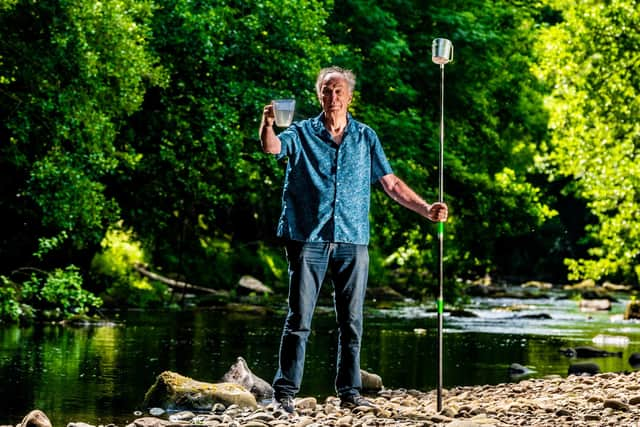Sewage in Yorkshire rivers: Rising flow of fury on sewage in our rivers as campaigners warn regulators must take a tighter grip
The issue of pollution in the region’s waterways has been gathering pace since 2018, when Ilkley campaigners first laid bare a “horror story” of waste in the Wharfe.
Yorkshire Water’s chief executive issued an apology in May for not acting sooner to ensure systems - storm overflows and dated infrastructure - were fit for the 21st century.
Advertisement
Hide AdAdvertisement
Hide AdBut following claims that 419 Olympic swimming pools of raw sewage were released into just two of the region’s rivers in a single year, calls have intensified for improved regulation.


River monitoring across the region is increasingly led by citizen science, claim campaigners, as The Yorkshire Post joins anglers, academics and swimmers taking on the testing of waterways.
But with findings reliant on the goodwill of volunteer efforts, questions have been asked about the Environment Agency, the official regulator.
Prof Peter Hammond, whose recent study of local sewage works caused uproar after detailing estimates of the sheer volume of untreated sewage discharged to two Yorkshire rivers, warns stricter oversight must be applied.
Advertisement
Hide AdAdvertisement
Hide AdWhile sewage overflows are measured in incidents and hours, there is no requirement to record the volume that is being released into Yorkshire’s waterways - or what it contains.
Prof Hammond, a mathematician who scrutinises data on untreated sewage spills and has previously given evidence to MPs, argued that self-regulation by the Water Industry was like a “child marking their own homework”.
He said that financial and environment regulation of England’s water companies, oversight of investment and sewage treatment, has been “atrocious” as evidenced by the current emergency at Thames Water.
In May, water and sewerage companies in England issued a joint apology for sewage spills as they tripled investment with a £10bn transformation programme.
Advertisement
Hide AdAdvertisement
Hide AdYorkshire Water, stressing that it does not ‘dump’ sewage but that it overflows as the system is designed to do, said tackling this was a priority but this was a “significant task”.
“In Yorkshire, we have over 2,200 overflows and we know replumbing the whole of Yorkshire is not a quick fix as it would be both significantly disruptive and costly to customers,” a spokesman said. “But, we are investing £180m in storm overflow improvements in the next two years - above and beyond our existing business plans.”
And a government spokesperson, outlining an increased monitoring of overflows from seven per cent in 2010 to 91 per cent, said this government has enabled the extent of sewage discharges to be revealed so that it is better equipped to tackle it.
They said: “Our new Plan for Water sets out increased investment, tougher enforcement and tighter regulation to tackle every source of river pollution.
“We have recently confirmed over £1.7bn of new investment to improve storm overflows and cut discharges by 10,000 every year.”